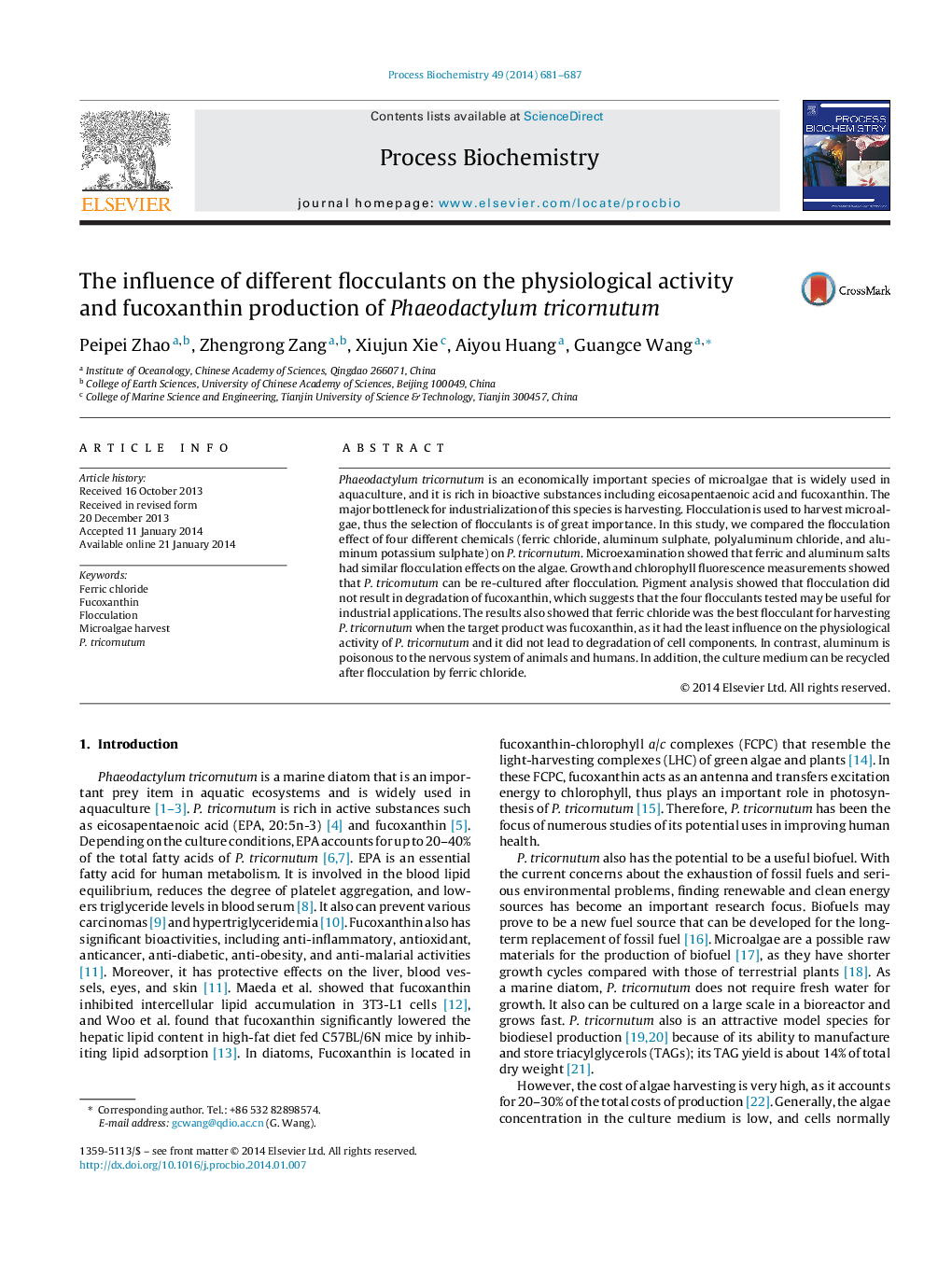| کد مقاله | کد نشریه | سال انتشار | مقاله انگلیسی | نسخه تمام متن |
|---|---|---|---|---|
| 34716 | 45040 | 2014 | 7 صفحه PDF | دانلود رایگان |

• The major bottleneck for industrialization of the algae is harvesting.
• Flocculation is a relatively commercial and effective method for microalgae harvesting.
• Ferric chloride, aluminum sulphate, polyaluminum chloride, and aluminum potassium sulphate at specific dose do not influence the physiological activity and fucoxanthin production of P. tricornutum.
• Ferric chloride is the best flocculant for harvesting P. tricornutum when the target product is fucoxanthin.
Phaeodactylum tricornutum is an economically important species of microalgae that is widely used in aquaculture, and it is rich in bioactive substances including eicosapentaenoic acid and fucoxanthin. The major bottleneck for industrialization of this species is harvesting. Flocculation is used to harvest microalgae, thus the selection of flocculants is of great importance. In this study, we compared the flocculation effect of four different chemicals (ferric chloride, aluminum sulphate, polyaluminum chloride, and aluminum potassium sulphate) on P. tricornutum. Microexamination showed that ferric and aluminum salts had similar flocculation effects on the algae. Growth and chlorophyll fluorescence measurements showed that P. tricornutum can be re-cultured after flocculation. Pigment analysis showed that flocculation did not result in degradation of fucoxanthin, which suggests that the four flocculants tested may be useful for industrial applications. The results also showed that ferric chloride was the best flocculant for harvesting P. tricornutum when the target product was fucoxanthin, as it had the least influence on the physiological activity of P. tricornutum and it did not lead to degradation of cell components. In contrast, aluminum is poisonous to the nervous system of animals and humans. In addition, the culture medium can be recycled after flocculation by ferric chloride.
Journal: Process Biochemistry - Volume 49, Issue 4, April 2014, Pages 681–687